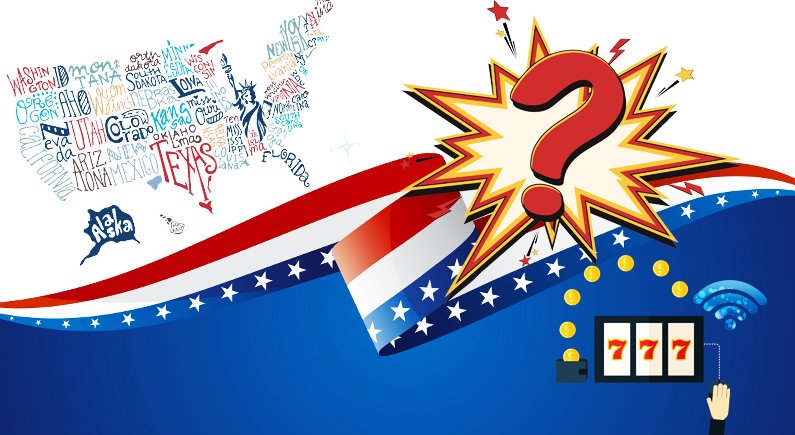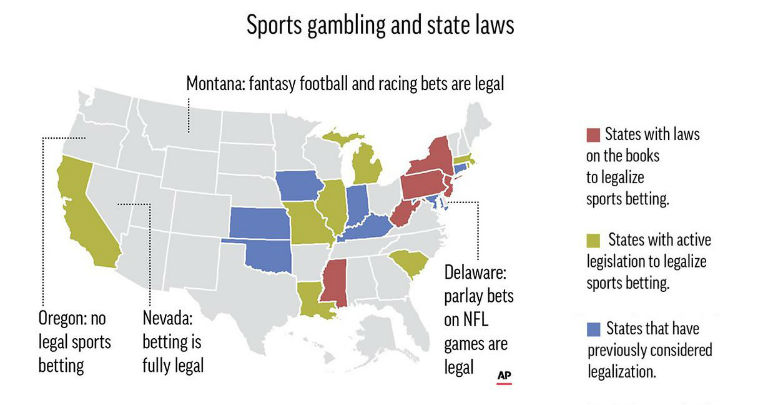US Online Casino Laws and Regulations

Gambling rules in the US are in three tiers starting from the Federal, State, and local governments. Today, the Internet and swift funds transfer methods make the wagering law in a few states archaic, while some do not have relevant rules for handling key gambling issues today. This piece is an overview of US online casino laws and regulations.
Federal Gambling Law Regulating US Online Casino
The vital gaming statutes are the Interstate Wire Act, the Professional Amateur Sports Protection Act, and the Unlawful Internet Gambling Enforcement Act.
Interstate Wire Act
Interstate Wire Act prevented you from placing a bet by a Wire communication service and banned online gambling entirely but was amended to allow some kinds of betting. The Interstate Wire Act of 1961 operated for several years, and it was used to catch criminals’ syndicates. In 2011, the Department of Justice simplified the rule that restricted US citizens from gambling by the telephone.
It stated that Interstate Transmissions of wire communications are not associated with sporting events or competitions. That explanation meant online poker and US online casino games became accessible to gamblers, but sports staking was still illegal.
The Professional and Amateur Sports Protection Act (PASPA)
This act became operational in 1992 with a small impact on online gambling in the US online casinos. This Law, titled an act to prohibit sports gambling under state law had a crucial part. It stopped the government from approving betting on amateur and professional sports and fantasy sports. However, sports betting states like Montana, Oregon, Delaware, and Nevada were excused by the Law.
The Law limiting sports betting in the US was amended in 2018, granting states the authority to make online casinos and online sports betting laws.
The Unlawful Internet Gambling Enforcement Act (UIGEA)

This Law has more weight on US online casino gambling than the earlier ones. UIGEA was signed into Law in 2006, attached to a national defense bill called SAFE Ports Acts. The Law influenced online gambling by blocking the processing of gambling payments by banks. The exceptions to this rule were skills games, specific fantasy sports betting present in legal intrastate, and inter-tribal gaming markets.
Furthermore, this Law makes it difficult to transfer money to gambling websites and receive money from them. This crippled illegal gambling, but does not stop you from betting in any US online casino legally. The rule stopped banks and credit card Institutions from having any transactions with criminal gaming operators, not individual gamblers who continued to use them.
State Gambling Laws Regulating US Online Casino

State laws are more complicated than the federal rules and different in the fifty states, the two regions, and the District of Columbia. Nevada led the regulation of wagering in States. In 1949, Maryland legalized the slot machine, and in 1970 new rules allowed casinos and lottery in Atlantic City.
States gaming laws keep growing, and some states like Nevada outlawed online gambling in casinos altogether except the State regulates it. States that banned online gambling include Indiana, Illinois, Louisiana, New Jersey, Oregon, Montana, Maryland, Wisconsin, South Dakota, and Washington.
Local Gambling Laws Regulating US Online Casino
The local counties’ gambling laws are limited to solving precise problems these counselors spot in their locality. These city councils have not banned any US online casino business. Some counties legalized gambling rooms, taxed gambling machine operators annually and collaborated to catch illegal online gambling operators.